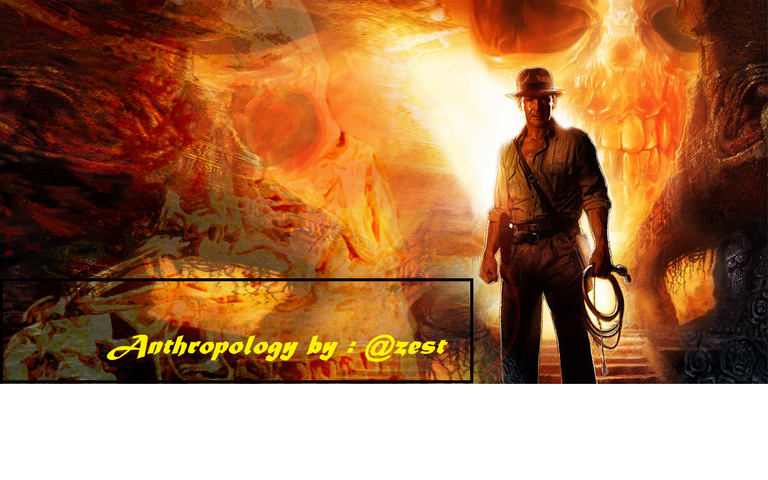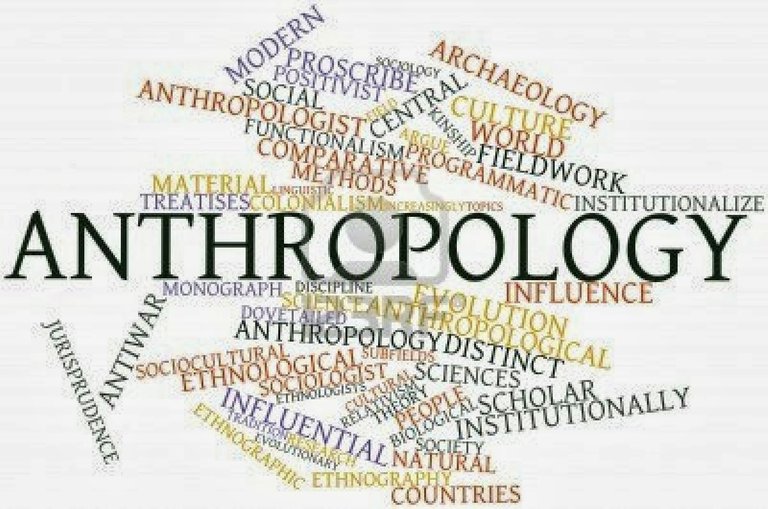
Anthropology and Other disciplines
You might well suggest that there are several other disciplines that also study people. For example: psychology, sociology, history, geography, political science, economics, human biology and even philosophy and literature. As we progressively experience anthropology as a discipline, in this post and others to follow, you will become aware that a particular approach, characteristic perspectives and distinctive methods of doing research are what distinguishes anthropology from these other disciplines.
A discipline is a branch of science. Different disciplines have different fields of study and each has its particular approach and methods of obtaining data.
Yes, these other disciplines also study people, but they tend to be narrower in their emphasis and usually focus only on a certain aspect of the human condition.
A few examples are:
Psychology studies the mental life of humans by means of scientific and interpretive methods. The nature and characteristics of the human psyche or mind are therefore the focus of psychology. Anthropologists would argue that individual psychology is shaped by the particular human environment or sociocultural context in which a person grows up and lives. Anthropologists, in fact, have provided and continue to provide cross-cultural perspectives on psychoanalytic propositions and on issues of development and cognitive psychology (Kottak 2008:16). Specialist fields of study have developed in anthropology as a result: psychological anthropology, culture and personality, ethnopsychology, etc
Sociology studies the social life of people, more particularly the social relations, organisation and human behaviour of human societies. Anthropologists, of course, share these interests, but there are significant conventional differences between the disciplines. Initially, sociologists were inclined to study societies, and different groupings within them, in the industrial "West" ("modern" or "developed" or "urbanised" people). Anthropologists for their part at first worked mainly among nonindustrial people ("traditional" or "preliterate" or "pre-industrail") and the two disciplines developed different methods of data collection. In order to study complex communities and societies sociologists came to rely on questionnaires and other techniques to produce quantifiable data - sampling and statistical methods were therefore important. The populations anthropologists originally concentrated on were smaller, nonliterate (without writing) groupings of people in mainly rural settings. Anthropologists developed qualitative research strategies in these contexts - they lived with people for extended periods of time, participated in their daily activities and observed, at first hand, the normal routine of their lives.
Over the years as disciplines developed, and as world populations were transformed - not least by migration, urbanisation, industrialisation and globalisation - their focus, topics and methods have converged and disciplines have of course "borrowed" from each other to better study the people and problems that present themselves.
History is inclined to focus on past events and individuals, and historians seek to explain why such events occurred in the sequence that they did, as well as the role of particular individuals and circumstances in such a process. Anthropologists emphasises the contemporary situation and events although, naturally, anthropologists cannot work without an awareness of the past, of the sequence of occurrences that led to contemporary human dynamics.
Geographers, particularly human geographers, are also interested in people. However, they tend to relate the study of humans to the study of the land. They stress ecological factors such as terrain and climate and their influence on human behaviour.
The Anthropological Perspective and Approach
As you read above, the other disciplines generally limit their field of study to particular aspects or systems of human living. Anthropology, however, as we have seen, is concerned with the human condition in its entirety. In addition, therefore, to its characteristic scope of studying people worldwide and throughout time, another distinguishing feature of anthropology is its holistic or multifaceted approach to studying human beings. In other words, anthropologists take the whole context of a particular group of people into account.
Anthropologists study not only all varieties of people, but also many aspects of human experience. For example, when describing a group of people, an anthropologist might discuss the history of the area in which the people live, the physical environment, the organisation of family life, the general features of their language, the group's settlement patterns, political and economic systems, religion, and styles of art and dress (Ember, Ember & Peregrine 2005:2)
Anthropology thus integrates many different areas of concern and is therefore an attempt to get "the whole picture", to put it all together and to apply knowledge from various spheres of activity to the understanding of any particular aspect of human behaviour - by placing this within its sociocultural and environmental context.
The term "holism" has become rather "unfashionable" in some quarters in recent years, because it has carried the implication that sociocultural systems, and people's lives, are interconnected in an almost ideal, balanced and perfectly functional way. The reality is that anthropologists often study peoples' lives as fragmented worlds containing many inherent contradictions that are either not integrated or only partially integrated. Contextualisation might be more useful concept, implying not stability and integration, but it emphasises dynamic relationships between phenomena.
The notion of holism (or contextualisation) is, therefore, based on the expectation that each patterned element or system is dependent upon or linked to some other elements within a specific time, situation, and locality. Anthropologists find that change within one system can influence other systems. For example, changes in a group's economic system may have an influence on religious roles, family organisation, political behaviour or any other sociocultural system of that group. This is based on the view that sociocultural systems and peoples' lives are organised wholes within which the different elements or parts are linked and interdependent.
The anthropological approach is also typified by comparison, or what has been called the comparative method. Perhaps we should first understand what anthropological is not. It is not intended as a way of determining which groups, communities or societies (or their ways of organising their lives - their sociocultural systems) are better, superior or at a higher level of development (more "civilised" was a term used in earlier, particularly non-anthropological writings). Instead, comparison is employed by anthropologists to indicate differences between the sociocultural systems of people, but also to bring to the fore similarities or even universal. By doing this, anthropologists can put their generalisations and theories to the test and further refine them. Anthropologists do not accept generalisations about the human condition based solely on their own sociocultural experience: they endeavour to compare a wide range of sociocultural systems of groups and of people throughout the world. Such comparative generalisations are used to find out what is similar or different in various systems; if they can uncover some common features, this will help anthropologists to understand why humans behave in the way they do.
Finally, anthropology is also associated with the concept of culture (or a sociocultural system) and with a particular method of doing research and fieldwork.
Images are linked to their sources in their description and references are stated within the text.
Thank you for reading
Thank you @foundation for this amazing SteemSTEM gif






Thank you for sharing all of this information with us all on Steemit.com, I have always been a huge fan of anthropology.
I already look forward to reading your next article as you found yourself a new follower. Upvoted 100% and resteemed too!
Namaste :)
Hi @eric-boucher
Thank you sincerely for the great comment and support. I am truly humbled and greatly appreciative.
Namaste:)
It is an honour to be able to share this platform with other souls caring for quality and integrity in the heart of our spirit, here on Steemit.com
It is my great pleasure!
Namaste :)
Excellent. I am really excited to read that. Thank you again!
"... anthropologists take the whole context of a particular group of people into account"
I think this is the best approach to come to an understanding of what moves humanity. Sure you know Rudolf Steiner and maybe also Paul Watzlawick?
Bridging the disciplines is a really good approach and we should all be less competitors and more like "co-operators". To this holistic view I also include the "Five pillars of identity", in which human existence is based on these universal pillars and the areas in which everyone moves. If you are interested, I will check again where I can find links or hints in my articles. Though it is more related to Psychology.
Alan Watts, one of my heroes pointed once out that psychology is not a science but more of an art. I understood him in this way that dealing with the human psyche requires not only specialist knowledge but also a kind of artistic and humorous intuition.
Did you happen to come across this one yet?!? It totally underlines the importance of cross-disciplinary junctures and the power this process has in understanding a people, in this case Australian aboriginal groups, and specifically as "anthropological study of the cultural use and social potential of dreams among Aboriginal groups of the Australian Western Desert"(Sylvie Poirier, Anthropology Teacher at Université Laval, Quebec City):
https://books.google.ca/books/about/A_World_of_Relationships.html?id=R1Oskt0srj4C&redir_esc=y
Namaste :)
No, I haven't. It sounds like exactly what interests me. Thank you!
I must duplicate myself in order to read all this great material out there:)
There is no review on this page yet. Maybe you'd like to write one about the book? What fascinated and impressed you about it in particular?
Just chewed in your last post and found this sonorous phrase:"Cooking healthy thoughts, makes a healthier mindset". I'm going to go into it later.
This makes me think of writing something about one of my favorites, perhaps as a kind of homage.
Anthropology is as it seems, much too underrepresented.
There is in deed half a quasi-infinite amount of reading out there, I hear you. Of the many books endowed of anthropological sharing, this one is particularly powerful as it is so encompassing in terms of multi-disciplinarian wholesomeness, on one hand. Coming from the perspective of academic background, such reach has never been seen in any of the books I had seen then or since.
Furthermore and more importantly, its potency derives straight from its sharing of experiential-knowledge as the stature of it goes well beyond the mundane and, metaphorically speaking, points at the moon for the ones ready and willing to look at it and move toward it...
The prose isn't elitist and is given a fair attempt at reaching a reader from as wide a background as one can given the situation. As you may know, this is a rare combo in the academic world!?.
Here's the presentation of her book, if you haven't had the chance of reading it through the link offered earlier:
Is paleontology related to anthropology too? I know paleontology is related to archaeology, but not sure of anthropology
Awesome post... , delighted to UPVOTE and FOLLOW...check me out..and if you like my posts or videos, delighted if you can return the compliment.
See my videos here :-
Congratulations @zest, this post is the eighth most rewarded post (based on pending payouts) in the last 12 hours written by a Superuser account holder (accounts that hold between 1 and 10 Mega Vests). The total number of posts by Superuser account holders during this period was 849 and the total pending payments to posts in this category was $3611.35. To see the full list of highest paid posts across all accounts categories, click here.
If you do not wish to receive these messages in future, please reply stop to this comment.
there are large of word and very systemic explanation, I appreciated that. I like to ask you with the single question. Maybe the Q very deep then on your topic... there are Antropo-Techno. I give little vision for that like this. the Techno must come for Antropo side. the proof for it is " a time", then from the manual time accounted they create thousand of professional times accounted. The Q is... The Anthropology, where they come??? thanks.